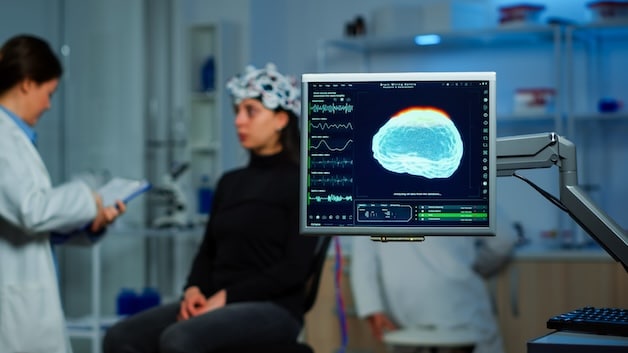A MISSION FOR MICHAEL

Living with trauma means more than just carrying around bad memories – it’s reliving them and feeling their impact on your day-to-day, even years after the experience is over.
Trauma lives in the moments when you’re suddenly back there, heart pounding, breath short, even when you’re safe in your own home.
Trauma means that certain words, sounds, or smells don’t just remind you of what happened – they catapult you back, making it feel as immediate and terrifying as it was then.
But you don’t have to live this way forever.
Trauma (or the way distressing experiences embed themselves into the brain) is well recognized and understood by mental health professionals.
At AMFM, we specialize in changing the way trauma interrupts your present, offering solutions and support proven to gently detach those vivid experiences from your current reality. Trauma runs deep- but so does the human capacity for resilience and recovery. We’re here to help show you how to tap into that so you can start living your life again.
Trauma is a brain and body response that can be caused by distressing experiences. Traumatic events shake us to our core – they challenge our sense of safety and stability. The magnitude of the event doesn’t matter as much as how it impacts you. One person may be traumatized by a particular event, but another may not. We all respond differently.
There are a lot of events that can cause trauma, from physical threats to emotional scarring.
Here are some common sources:
If experience distressing symptoms after a traumatic experience like this, it’s okay. You’re reacting normally to something extraordinary.
The trauma we experience changes the way we respond to the world around us.
With trauma, the event doesn’t live just in our memories, but in the very wiring of our brains. Once there, trauma expresses itself in many ways you might not recognize right away, but they’re signs that the experience continues to impact you.
If you have trauma, you might experience:
Recurrent, involuntary memories of the traumatic event that interrupt your day-to-day life.
Feeling as though the event is happening again right now.
Frequent, vivid dreams related to the event.
Steering clear of places, people, or activities that are reminders of what happened.
Feelings of hopelessness, memory problems, difficulty maintaining close relationships, or feeling detached from others.
Being easily startled, feeling tense or on edge, having difficulty sleeping, or experiencing angry outbursts.
Left untreated, trauma often turns into anxiety or depression.
People with trauma might have all of these symptoms, or just a few of them. Either way, the trauma is very real and often requires professional treatment to heal.
Trauma doesn’t just affect us emotionally; it fundamentally alters our brain’s function and structure.
When faced with trauma, our body’s immediate response is a surge of adrenaline, kick-starting our fight, flight, or freeze reaction. This response is deeply rooted in the limbic system, specifically within a small but mighty part called the amygdala. The amygdala captures the emotional essence of our traumatic experience, encoding it not in words but in raw, sensory fragments—sounds, sights, smells, tastes, and touches. This means trauma memories aren’t stored like a typical narrative but as disjointed sensory snapshots.
These sensory fragments can make the brain hyper-vigilant, misinterpreting everyday stimuli as threats. A simple red light, for instance, might trigger an intense response, as the brain struggles to distinguish between past danger and present safety.

The prefrontal cortex, our center for reasoning, language, and conscious thought, often goes offline during traumatic events. This part of the brain is supposed to help us process and make sense of our experiences, but trauma can overwhelm it, leading to a kind of shutdown. This is why, in the aftermath of trauma, people might find it hard to articulate their experiences or make logical decisions—they’re operating in a state where survival instincts have overridden the capacity for higher reasoning.
This shift in brain function explains why trauma can feel so all-consuming and why it’s not something one can simply “get over.” The memories are imprinted in a way that our normal coping mechanisms are bypassed, leaving us in a state of heightened alertness to danger, even when we’re safe.
Understanding this neuroscience of trauma highlights the importance of treatments that help rewire these brain responses, creating new ways to move traumatic memories from the “active threat” part of our brains, to the “it happened, but I’m safe now” part.
No one can be defined by a diagnosis, but understanding common groupings of symptoms can be a powerful step in recognizing when help is needed. These diagnostic categories help us make sense of what can feel like an overwhelming number of feelings, symptoms, and reactions, giving us a starting point for healing and recovery.
Probably the most well-known trauma disorder, PTSD is marked by intense, disturbing thoughts and feelings connected to a traumatic event. These thoughts and feelings last long after the event has occurred. Symptoms might include flashbacks, nightmares, severe anxiety, and uncontrollable thoughts about the event.
ASD involves similar symptoms to PTSD but occurs shortly after the traumatic event and doesn’t last as long, typically from three days to one month. It’s a reaction to the stress of a traumatic event, with symptoms that may include dissociation, panic, and sleep disturbance.
When a traumatic event occurs repeatedly, PTSD can turn into C-PTSD. C-PTSD events often occur in relationships where there is an expectation of trust. It encompasses symptoms of PTSD, plus issues tied to self-esteem, emotional regulation, and relationships with others.
After a traumatic event, people may feel detached from themselves and their surroundings. They might describe feelings of unreality, as if they are watching themselves on a television screen, or feeling like there is a barrier between themselves and everything around them.
Understanding these disorders doesn’t mean you’re accepting a label that limits who you are or what you can become. It does mean that you’re better able to recognize the signs that your mind and body are signaling for help.
At AMFM, we throw ourselves into every journey of trauma recovery with a deep sense of optimism. We have a lot of experience working with trauma. The professionals who work in our trauma treatment programs have seen amazing results, time and again. Clients who have been through trauma often experience profound growth and healing, showing the value of expert care.
In our approach to trauma treatment, we’re rooted in a holistic, evidence-based, and patient-centric philosophy. That means we’re focused on you, not your diagnosis, we use approaches that are proven to work, and we pull out all the stops to make sure you get what you need to heal. Our therapies combine traditional and innovative methods, including EMDR, somatic experiencing, and trauma-focused cognitive behavioral therapy. Whatever it takes, we’ll make it happen.
Choosing AMFM for trauma treatment means partnering with a team that’s as committed to your recovery as you are. We’re here to offer hope, expert care, and a pathway forward– because we know that with the right support, you can overcome trauma and reclaim your life.
At AMFM, we have a trauma treatment program that addresses the unique needs of trauma survivors with a compassionate, expert-led approach.
Our approach isn’t just different, it’s deeply effective:
Exceptional Patient-to-Staff Ratios: We provide focused, individualized care by keeping staff-to-patient ratios low, so that every guest gets the attention he or she needs.
Serene Locations: Surrounded by tranquil surroundings, our facilities provide a calm haven that fosters healing. That means guests are able to focus on their recovery journey with fewer distractions.
Specialized Trauma Expertise: Our team includes professionals with specialized training in trauma treatment. As trauma experts, we understand the nuances and provide care that’s not just informed, but empathetic and effective
Continuing Education and Collaboration: Our partnership with leading institutions like the Beck Institute keeps our team at the forefront of mental health care, making sure that our practices are based on the latest research. And it’s not just our clinicians who learn – every member of staff is trained to help you.
Holistic Care Philosophy: We go beyond psychological treatment to include basics like nutrition, an essential part of health. Our ‘food as medicine’ philosophy takes diet into consideration in the recovery process, supporting both physical and mental health.
Tailored Treatment Plans: Healing from trauma is a highly personal journey. Our treatment plans are customized to fit each person’s unique story, challenges, and recovery goals.
Comprehensive Treatment Options: Because trauma is a complex issue, we offer a wide range of treatment options
AMFM provides more than just treatment; we offer a route to wellness, where trauma survivors can find understanding, expert care, and unwavering support.
Before diving into the depths of trauma therapy, AMFM takes time to establish stability and grounding- no throwing you in the deep end of the pool without first teaching you to swim. Our first priority is capacity building—making sure you have the tools and support you need to find a stable starting point. This is especially important for people who may feel overwhelmed, so they’re ready for more intensive therapies like EMDR.
Trauma treatment at our facility can draw from a variety of specialized therapies, all designed to meet the needs of our clients. They include (but aren’t limited to):

It’s important to not just overcome trauma, but also prepare for life outside of treatment. We create an environment that fosters stability and growth, so when you’re ready to go back to your everyday life, you have the strategies and skills you need. Our team will work with you to create a seamless transition plan that fits your needs, from practical applications of coping mechanisms to connecting you with the right post-treatment support therapist. Our goal is to give you the tools and confidence you need to manage your life after treatment.
Call us or start the process online today. All communication is confidential.
If we are not an appropriate provider for care, we will assist in finding a care provider that can help.
Our commitment to clinical excellence is reflected in our rigorous adherence to industry standards. We hold licenses and accreditations from respected regulatory bodies, ensuring that our services meet the highest levels of quality and compliance. Listed below are the certifications that endorse our dedication to providing safe, ethical, and effective care.
Copyright 2024 © A MISSION FOR MICHAEL
All rights Reserved | Privacy Policy